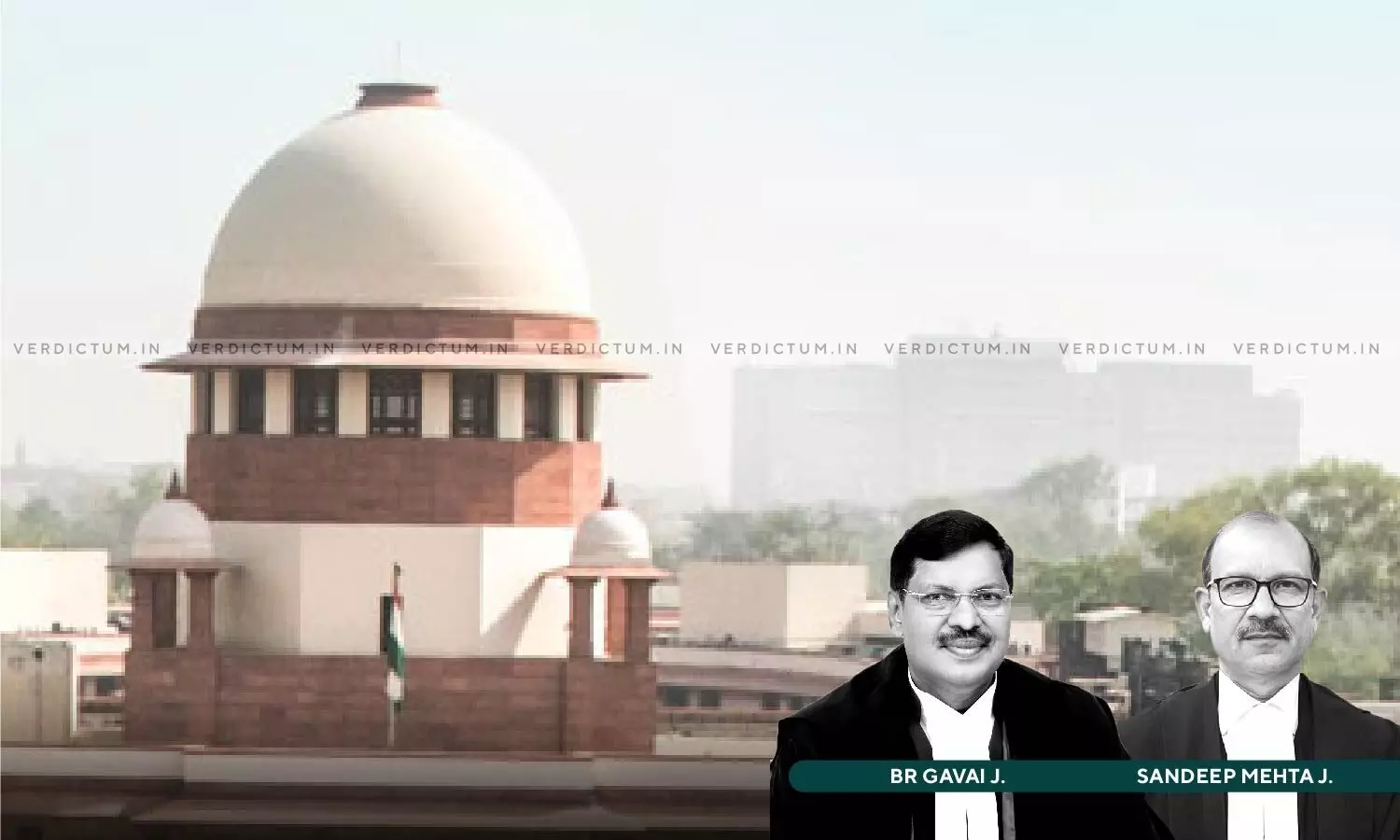
Hindu Female Must Not Only Be Possessed Of The Property But She Must Have Acquired It For Establishing Full Ownership U/S 14(1) Of Hindu Succession Act :SC
 |
|The Supreme Court held that for establishing full ownership on the undivided joint family estate under Section 14(1) of the Hindu Succession Act the Hindu female must not only be possessed of the property but she must have acquired the property.
The court added that such acquisition must be either by way of inheritance or devise, or at a partition or “in lieu of maintenance or arrears of maintenance” or by gift or be her own skill or exertion, or by purchase or by prescription.
The Court held thus in an appeal challenging the final judgment and order of the Rajasthan High Court by which the appeal questioning the legality and validity of the judgment of the Single Judge was dismissed.
The two-Judge Bench comprising Justice B.R. Gavai and Justice Sandeep Mehta observed, “Seen in the light of the ratio of the above judgments, it is clear that for establishing full ownership on the undivided joint family estate under Section 14(1) of the Succession Act the Hindu female must not only be possessed of the property but she must have acquired the property and such acquisition must be either by way of inheritance or devise, or at a partition or “in lieu of maintenance or arrears of maintenance” or by gift or be her own skill or exertion, or by purchase or by prescription.”
Advocate Puneet Jain appeared on behalf of the appellant while Senior Advocate Bishwajit Bhattacharya appeared on behalf of the respondents.
Facts of the Case -
The core question of law in this case was as to the right of the plaintiff being legal heir of Hindu widow to enforce her right of succession in the unpartitioned Joint Hindu Family property by virtue of Section 14(1) of HSA by filing a suit in the Revenue Court. The suit property was owned by a man named Kishan Lal who had two sons, Mangilal and Madho Lal. Madho was married to Nandkanwarbai and Mangilal had a son Kanwarlal. Mangilal died in 1912 whereas Madho died issueless in 1929. Nandkanwarbai (widow) claimed to have adopted plaintiff Kailash Chand in 1959 that is nearly 30 years from the date of death of her husband. A will of the entire unpartitioned estate was executed by Kanwarlal in favour of the defendant Mukat Lal (appellant). Kanwarlal passed away in 1954 and thus, the suit property devolved upon the defendant under the will executed by Kanwarlal.
A civil suit was filed by the widow seeking a declaration of title and possession over the property contending that the same was HUF property and the will allegedly executed by Kanwarlal was illegal. The Civil Court dismissed the suit while recognizing the right of widow only to the extent of receiving maintenance from the property. She did not challenge such decision any further but the defendant/appellant on attaining majority, preferred an appeal against the judgment which was allowed by the Senior Civil Judge. Being aggrieved, the widow preferred a second appeal before the Single Judge of the High Court and during the pendency of the case, she passed away and her legal heir was taken on record. The Single Judge restored the civil court’s judgment and hence, the plaintiff approached the Revenue Court. Therefore, the appeal arose before the Apex Court from the revenue suit seeking partition.
The Supreme Court in the above context of the case noted, “Even on going through the pleadings in the Revenue suit for partition filed by plaintiff Kailash Chand, it is clear that there is not even a whisper in the plaint that Smt. Nandkanwarbai or the plaintiff Kailash Chand himself were ever in possession of the suit property. As a matter of fact, the suit was filed by pleading that the suit property was a joint Hindu family property and defendant-Mukat Lal(appellant herein) had consented to give half share of the suit property to the plaintiff Kailash Chand on his demand. This assertion was denied by defendant-Mukat Lal.”
The Court said that the deceased widow was never in possession of the suit property because the civil suit was filed by her claiming the relief of title as well as possession and the same was dismissed.
“This finding of the civil Court was never challenged. Since, Smt. Nadkanwarbai was never in possession of the suit property, as a necessary corollary the Revenue suit for partition claiming absolute ownership under Section 14(1) of the Hindu Succession Act could not be maintained by her adopted son, plaintiff Kailash Chand by virtue of inheritance”, it added.
Accordingly, the Apex Court allowed the appeal and set aside the impugned judgment.
Cause Title- Mukatlal v. Kailash Chand (D) Through LRs. and Ors.